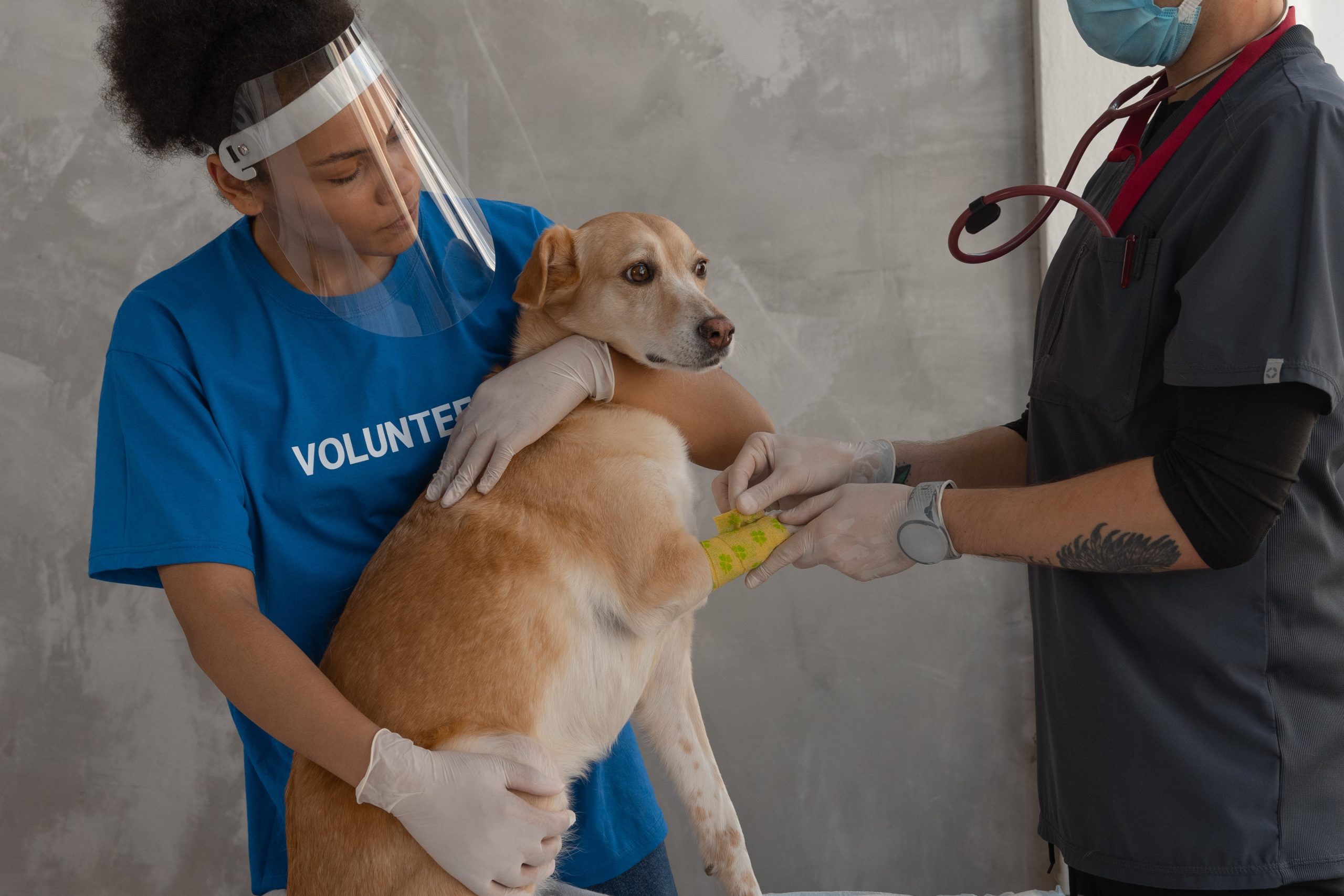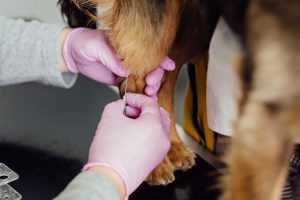Your pet’s immune system is typically exposed to a specific infection during vaccinations. The white blood cells in your pet’s body produce antibodies. The antibodies that your pet’s immune system has then eliminate the infection. Your pet is shielded from severe and potentially fatal diseases by routine vaccinations. They also aid in limiting the spread of diseases to people and other animals.
What Will Happen if Your Pet Is Not Vaccinated in Time?
They run the risk of getting severe, possibly fatal diseases. Vaccinations are necessary to safeguard your pet against various conditions that may spread quickly in the environment or through contact with other animals.
The following are some illnesses that vaccinations can help you avoid:
- Rabies
- Distemper
- Parvovirus
- Hepatitis
These illnesses can lead to serious illness and, in some cases, death.
Vaccinations not only safeguard your pet’s health but also work to stop the spread of disease to humans and other animals. This is crucial for zoonotic diseases since they can spread from animals to people.
If the vaccinations are past due, you should take them to a veterinarian to vaccinate your pet to get them back on track. Make an appointment with your veterinarian as soon as possible. Your veterinarian can advise you on the best schedule for future vaccinations and help you decide which vaccines your pet needs based on age, health status, and lifestyle.
Consequences of Failing to Update Your Pet’s Vaccinations
Social and Legal Concerns
If your pet is not current on vaccinations, there may be legal and social repercussions in addition to the health risks to your pet and others. For instance, in many places, laws mandate that pets receive rabies vaccinations. You may impose fines or other penalties for breaking these laws.
Limits Socialization and Pet Care
Additionally, it might be restricted from certain events or places, including dog parks, boarding houses, and grooming salons. This may reduce your pet’s access to care and socialization opportunities, harming their general health and well-being.
Treatment May Cost More
The cost of treating a sick pet whose vaccinations are out of date can be significantly higher than the cost of preventive care. Vaccinating your pet on time can help you save money in the long run because they are typically much less expensive than treating a serious illness or disease.
Considerations for Vaccinating Your Pet
When it comes to ensuring that your pet receives all necessary vaccinations, there are a few things to consider:
Reactions to Vaccines
Vaccines are generally safe, but some animals may have adverse reactions. Lethargy, appetite loss, fever, vomiting, diarrhea, or swelling at the injection site can all be vaccine reaction symptoms. Contact your veterinarian at once if you observe these signs in your pet after a vaccination.
Shot Schedules
Depending on their age, breed, and way of life, pets may require different vaccination schedules than humans. Based on your pet’s needs, your veterinarian can assist you in choosing the best vaccination schedule for them. You can go here to learn more about routine vaccinations and exams.
Travel Necessities
If you plan to take your pet on a trip, you should show vaccination documentation against certain illnesses, like rabies. Ensure your pet is current on all required vaccinations and check the destination’s vaccination requirements.
Age-Related Factors
A series of vaccinations must be given to puppies and kittens beginning at a young age to help them develop immunity. Senior pets might also need booster shots or additional vaccinations to keep their immunity.
You can visit websites like https://www.snellvilleanimalhospital.org/site/home to consult professionals.
Conclusion
Being a responsible pet owner means keeping your pet’s vaccinations current. Vaccines help protect your pet from serious, fatal illnesses and stop diseases from spreading to humans and other animals. If your pet is not vaccinated, there may be health risks, legal and social repercussions, and higher treatment costs. Otherwise, you can contribute to your pet’s well-being and the general public.




